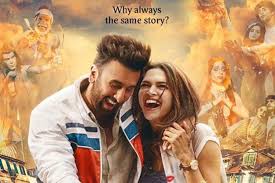Udyan Kishore
India is the land of stories. It’s beyond mere gossips, novels and films. Here stories went on to become religion and shaped the entire culture.
In the current time, however, feature films have undoubtedly become the most popular mode of story telling. And in Bollywood, Tamasha is so far the best explanation of Stories around the world. “Kya fark padta hai Lanka tha ya Troy? Sab Ek hi kahani to hai.” This is about the stories, from stories around the world to the stories we’re living ourselves. 
Every civilization, from Greece to India, produced some great stories. While they had Iliad and Odyssey, we had Ramayana and Mahabharata. Over a period of time, these stories have been written and rewritten. There’re countless versions of Ramayana and Mahabharata, with twists and turns, not just in India but outside as well. As the History suggests, even these epics themselves were not how they exist today. Written way back in Gupta period, over the centuries these books have been added with numerous ‘shlokas’ which definitely were not the part of the original collections. They went from thinner to thicker. Not just that, even their particular characters and events led to separate stories, poems and other forms of literature. ‘Rashmirathi’ and ‘Ram Ki Shakti Pooja’ also qualify as great pieces of literary works.
However, if we make an effort, a common patter can be derived between most of the great literature of oldest of civilizations across the globe. A common pattern between Mahabharata and Odyssey. These are the stories which inspired not just the following literature of their land but culture and politics as well. When Tulsi Das felt that Brahminism needed a revival, he re-wrote Ramayana as ‘Ramcharitmanas’. To gain the popularity, BJP needed ‘Ram Mandir’.
Talking about pattern, while Britain had ‘Romeo and Juliet’, Punjab had its ‘Heer-Ranjha’. The similarities between the concepts might be more than just a co-incidence. Tamasha, as a passing reference, tries to explain that wonderful coincidence.
Imtiaz Ali is one of the very few directors who gets better with every movie, the one who has evaded exceptions so far. Ranbir and Deepika have given their best in the film, but the character which steals the heart in the minimum moments on the screen is the Storyteller, played by Piyush Mishra. Dialogues and the lyrics suits the theme and as a musician, A R Rehman has justified his fame.
But it is not the movie of the actors or the musician. It’s the movie of the Director.
Some of its scenes resemble his previous movies like ‘Love Aaj Kal’ and ‘Rockstar’, but it rather makes the movie better. In personal life as well, some of our own stories leave an impact on every other story of our life.
In the movie, the Storyteller’s oneliner, “It’s your story, who else will tell?”, goes to become one of the most straightforward philosophies in our lives. The film revolves around this theme.
It’s a fact that most of us, the masses, live a routine life. We are bound to be attracted towards non-routines. It’s also a fact that most of us have more than one character, the routine one and the one who listens to the heart. But it is up to us to chose which life we want to lead. This is what Tamasha says, ending with a message that “it’s never too late, you can always change the end.”

Thank you for the great post